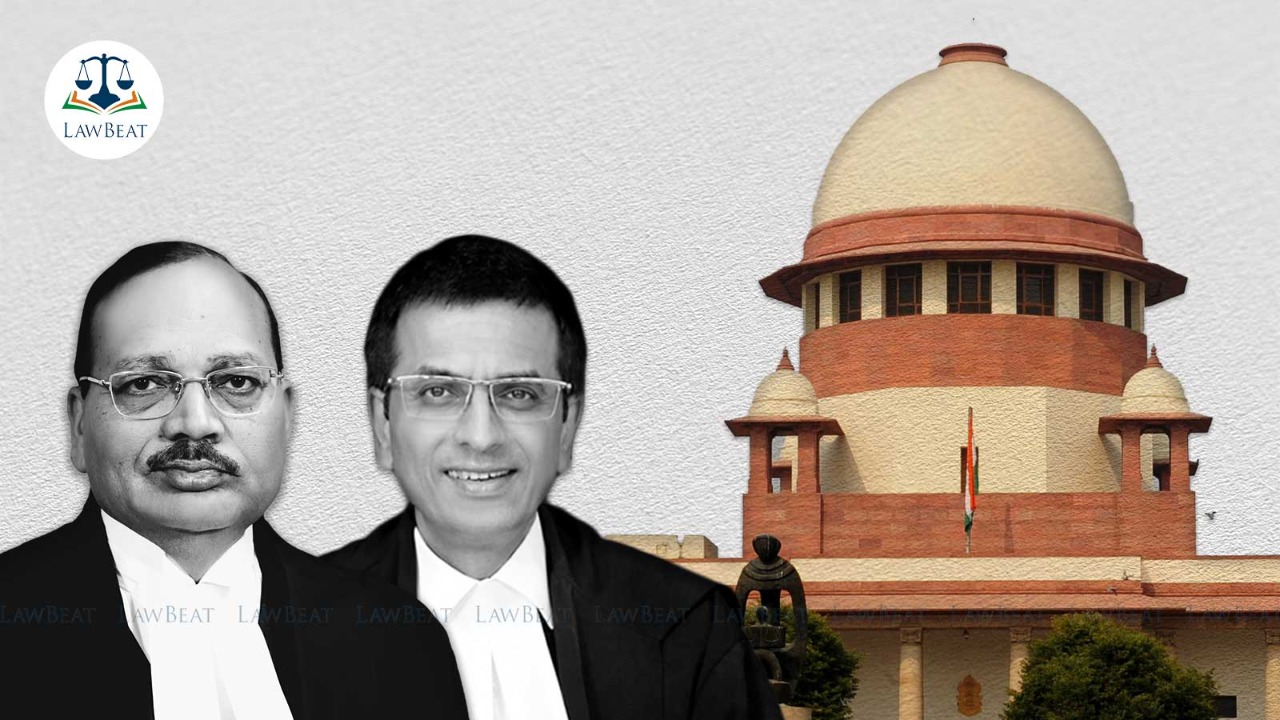Powers of preventive detention are exceptional and even 'draconian', remarks Supreme Court

Holding that the personal liberty of an accused cannot be sacrificed on the altar of preventive detention merely because a person is implicated in a criminal proceeding, the Supreme Court on Monday remarked that,
"The powers of preventive detention are exceptional and even draconian."
Tracing the origin of preventive detention to the colonial era, a bench of Justices DY Chandrachud and Surya Kant held that these powers have been continued with strict constitutional safeguards against abuse.
"Article 22 of the Constitution was specifically inserted and extensively debated in the Constituent Assembly to ensure that the exceptional powers of preventive detention do not devolve into a draconian and arbitrary exercise of state authority....", added the division bench.
These observations were made by the Top Court while allowing an appeal filed by one Mallada K Sri Ram, the brother of the detenu, challenging the judgment of Telangana High Court dismissing the writ petition seeking a writ of habeas corpus.
The detenu worked as an employee with M/s Ixora Corporate Services, Banjara Hills, Hyderabad. On 13th, October 2020, a complaint was lodged on behalf of the Company with the SHO, Banjara Hills, alleging that K Mahendar, another employee at the Company, had opened a salary account with the Federal Bank without authorization and in conspiracy with the detenu collected an amount of Rs 85 lakhs from 450 job aspirants.
It was alleged that K Mahendar who was in charge of the HR Department at the Company had, in collusion with the detenu, collected money from individuals by misrepresenting that they would be given a job at the Company.
Two FIRs came to be registered against the detenu, and he came to be released on bail in both instances.
Approximately five months later, an order of detention was passed against the detenu on 19th May, 2021 under the provisions of Section 3(2) of the Telangana Prevention of Dangerous Activities of Bootleggers, Dacoits, Drug-Offenders, Goondas, Immoral Traffic Offenders, Land Grabbers, Spurious Seed Offenders, Insecticide Offenders, Fertiliser Offenders, 3 “IPC” 3 Food Adulteration Offenders, Fake Document Offenders, Scheduled Commodities Offenders, Forest Offenders, Gaming Offenders, Sexual Offenders, Explosive Substances Offenders, Arms Offenders, Cyber Crime Offenders and White Collar or Financial Offenders Act 1986 (“Telangana Act of 1986").
Said order of detention noted that the detenu was a ‘white-collar offender’ under Section 2(x) of the Telangana Act of 1986 whose offence of cheating gullible job aspirants had been causing “large scale fear and panic among the gullible unemployed job aspirants/youth and thus he has been acting in a manner prejudicial to the maintenance of public order apart from disturbing the peace, tranquillity and social harmony in the society”.
These alleged offences were noted as the grounds for his detention, in addition to the apprehension that “he may violate the bail conditions and there is an imminent possibility of his committing similar offences, which would be detrimental to public order, unless he is prevented from doing so by an appropriate order of detention”.
Detention Order further recorded that the detenu had moved bail applications in two cases in which he was in judicial custody and that the Magistrate had granted him conditional bail. It was apprehended that he may violate the bail conditions while committing similar offences.
Pertinently, the division bench noted that no application for cancellation of bail was moved by the investigating authorities for violation of the bail conditions.
"The order of detention was passed nearly seven months after the registration of the first FIR and about five months after the registration of the second FIR. The order of detention is evidently based on stale material and demonstrates non-application of mind on the part of the detaining authority to the fact that the conditions which were imposed on the detenu, while granting bail, were duly fulfilled and there was no incidence of a further violation...", further noted the bench.
Furthermore, the bench clarified that there existed a distinction between a disturbance to law and order and a disturbance to public order.
"A mere apprehension of a breach of law and order is not sufficient to meet the standard of adversely affecting the “maintenance of public order”. In this case, the apprehension of a disturbance to public order owing to a crime that was reported over seven months prior to the detention order has no basis in fact", said the Court.
While noting that the allegations against the detenu are grave, the court was of the opinion that two FIRs which were registered against the detenu were capable of being dealt by the ordinary course of criminal law.
Noting that no counter affidavit was filed on behalf of State of Telangana after a notice was served to it, the bench declined to allow any further time to the state to submit its reply.
"The liberty of the citizen cannot be left to the lethargy of and the delays on the part of the state....", the bench said.
Also, noting that in the last five years, the Court has quashed over five detention orders under the Telangana Act of 1986 for inter alia incorrectly applying the standard for maintenance of public order and relying on stale materials, the bench ordered thus,
"These numbers evince a callous exercise of the exceptional power of preventive detention by the detaining authorities and the respondent-state. We direct the respondents to take stock of challenges to detention orders pending before the Advisory Board, High Court and Supreme Court and evaluate the fairness of the detention order against lawful standards."
Case Title: Mallada K Sri Ram vs The State of Telangana & Ors
